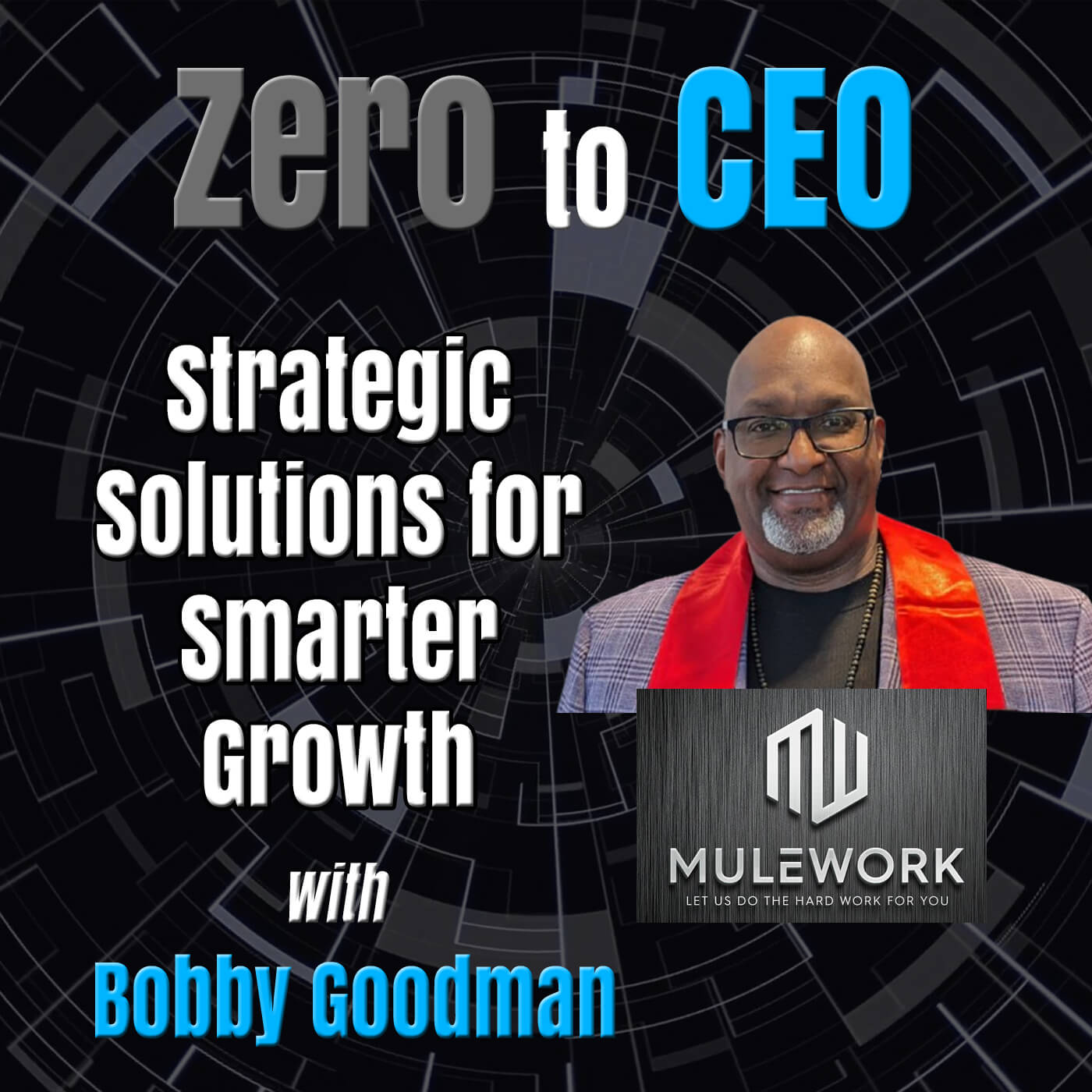The Challenges of Running your own Business

To most people, running your own business seems glorious, fun, exciting, and full of perks. But the truth is, running a business is difficult, challenging, and stressful at times. In this episode, I go through some of the challenges of running a business, and why it’s worth all the hard work.
Here’s the transcript from this podcast episode, please excuse any typos!
In this episode I’m going to talk about why running a tech startup is one of the most challenging jobs out there to most people my job seems glorious fun exciting and full of perks, but the truth is running the tech startups that have been running all these years, is one of the most difficult, challenging and stressful things I’ve ever had to do. And some people ask me why I’m an entrepreneur. Why do I run companies instead of just getting a full time job at a large corporation? And then of course I reply well I did used to have these corporate nine to five jobs back when I graduated college, and in the late 90s and early 2000s, I had a string of jobs from anything from helpdesk support to it networking or field technician or y2k updates or it third party support, like I was always doing like technical and information technology jobs for years and years. Then for me there was this pivotal moment when I was the IT supervisor of a large company, and in 2005.
After a year of transforming them from not using the internet, not having their inventory online and not having a website, etc. I basically built them an entire infrastructure that now their sales people can use their customers could use online, their employees could log in online, there was a website built, I did all sorts of work for them to the point where they were now making over a million dollars a month in profit extra from before I was hired. After a while, the company started to just make money every month. They didn’t really need me. I know it sounds crazy but I was literally sitting there twiddling my thumbs for the last month or two that I worked there. And then, my, my boss or the owner of the company called me into his office and I knew what was going to happen. Thankfully I was prepared. I knew what my next step was going to be. I had a consulting company for technology and I realized that this was the right time to take it to the next level, and start doing it full time. The year was 2005, and I was now out of a job. But I said to myself, the next time I make a company a million dollars a month, it’s going to be my own. So I struggled for a couple of years until 2006 789 all the way until smartphones came out. I was running my businesses and trying to keep afloat and keep the bills paid and I was able to do so.
It was very difficult and challenging and stressful and some days I didn’t want to just throw in the towel and get a job because it’s so much easier to just work for somebody else and get paid a salary every month, but the problem then is you’re giving up your freedom. And so since 2005, I haven’t had a real paycheck. This is probably the most challenging piece for most people, they say well how do you stay afloat and how do you make an income and how are you comfortable. How are you able to put food on the table? Well, you can call me a consultant or Freelancer. I’ve had to pick up as many contract jobs as possible and taken some bigger jobs that I can then hire people to help me with so that I can make more of an income, being a project manager. And that’s part of what the challenging piece of running a business is is managing people. In my case, most of the employees I had to run were database developers iOS and Android developers or web programmers vendors branding and marketing experts content and PR, all sorts of different people that I had to manage, and even entrepreneurs who are starting a business because they need some guidance they need help they need somebody to help them basically run the business. So it’s a full time job when people say to me, Jason Why don’t you get a job and then do some aside well you can’t, it’s a full time job keeping track of all the work being done like think about the priority lists the campaign results the code bases, all the nuances of employee tracking. It should all be done by a project manager, and since I was the project manager, I had to do most of that work. It also includes PowerPoint presentations and legal documentation. You know when you hire new employees or freelancers. You have to have some sort of independent contractor agreement, non disclosure agreements that kind of thing.
Then when it comes to campaign results in spreadsheets, I mean somebody has to be on top of that shortly. Again, you’re managing employees and you have all these people that you’re working with. But in the end, you have to manage the entire project, you have to make sure it’s getting done right and that’s why as the CEO of a tech startup or as the project manager of a startup, I had to always be in charge of that so I had to even if I’m not getting paid for all that work, I still had to get it done. And of course, the goal of a startup or a business is to either raise money or earn revenue to pay your bills, and I’ve been able to do that here and there with different companies, some more than others and some less than others and it kind of all balances out to the point where I might have been making an average salary every year, give or take some years better than others, to the point that that’s what it would have been like having a job. The difference being, I had the freedom to do the work when I wanted to versus when I was told to, I was able to take days off when I wanted to versus when I was able to, and that’s one of the perks, but when it comes to the schedule.
People think that I work whenever I want. And that I take time off all the time when it’s actually the opposite. When I first started out, I remember working from like 7am till like 11pm, even Saturdays and Sundays, even when I wasn’t at the computer I was still on call. Whether it was a video conference replying to an email answering the phone, having a meeting in person. Punching down on some paperwork. When you have to rely on yourself to make an income. There is no such thing as time off, you know, yeah, I was still taking the breaks to go to the gym, cook off my dog, go to networking events and spend time with my friends and family. But if something came up while I was doing one of those things, the work took the priority because if I didn’t do the work, I didn’t make money. And that’s a huge challenge with running a business or a tech startup or any kind of company is when you don’t work, you don’t make money. So you kind of prioritize work over everything else. Some people call it a workaholic. Some people say it’s unhealthy. I say it is, unless you take an ample amount of breaks, which over the years I started to learn how to do that and that’s one of the things I mentioned in my other podcast episodes is that you have to take as many breaks as possible to avoid the pitfalls of getting burned out. One of the most frustrating things of running a business or a startup is the breakthroughs. And what I mean is when you think you hit a milestone that was unattainable like you’re like wow, I got my first 10,000 users or I sold my first $5,000 worth of products out of my shop, or I got my first 100 clients for my office. It’s such a great thing to get that breakthrough and get that milestone.
But then you realize it’s still not enough. You know, for example, to get funding from a bank or to get an investor, they want to see 10 times that it’s really frustrating when you talk to somebody about funding or talking to an investor about getting financing. For example, no matter how far I came with past tech startups, it never was enough for investors. So I realized they want to see the platform built, they want to see user adoption, they want to see some data that supports traction, they want to see some sort of a revenue strategy monetization. So again for our team we were excited when we hit certain numbers or added a new feature or got 10,000 more users, or we won an award, or we were mentioned by a news company, but the investors, they didn’t seem to care and that was frustrating that’s a big challenge is how do you make the investors interested. And I think it’s one of the most ridiculous and frustrating parts of running a tech startup or business. Investors expect tech startups to have over a million users and make a million dollars in revenue and get all their development work finished prior to getting an investment.
The challenge with this is, it takes years of time and a lot of money to do. It’s what everybody calls a chicken and egg situation. We need funding in order to achieve these results, but investors want us to achieve these results before getting their money. They don’t just want a PowerPoint or an idea, they want to see you build a platform, get users, earn revenue, and then ask for money. And even if you have all of those things. You still probably can’t get funding, believe it or not, it’s crazy how much you need to prove before they give you funding because they want you to mitigate, all the risks associated with them giving you funding. So that’s one of the biggest challenges with starting a business or a tech startup is having enough money to survive. And this is where I think people need to take a step back and think about what exactly they’re trying to do. For example, let’s say that you want to open your own store. You’ve found a niche in pocketbooks you’re really good at making them from scratch by importing fabric from different countries or going to New York and getting fabric or whatever it is you did to make these pocketbooks kind of stand out. Let’s say you sold 100 pocketbooks over the course of two months, and you’ve earned, let’s say, $2,000 in profit, and you said wow, I just made enough profit that I could potentially quit my job, or maybe you’re a stay at home mom, and you’re want to support your husband, and your kids by a little extra income. Here’s where people make a mistake.
They see the numbers of what they could make on a larger scale. And they instantly believe they can hit that number. And I’m going to say yes, you can hit that number absolutely but you can’t go on with. There’s a reason why most businesses fail in the first five years. So what do you do when you have this successful pocketbook business? Well you don’t open a store, you don’t pay rent and utilities for storage. signage and employees and cash registers and furniture and just all the things that go along with putting together a store. That’s how you go out of business that’s how you lose your shirt and that’s how you get frustrated and stressed out to the max. So, I can’t tell you how many people asked me So Jason What do I do that if I don’t open my own store, simple, find somebody who already has a store open with some extra space, and ask them if they don’t mind if you sell your pocketbooks there for a few months on consignment to see what happens.
Maybe you can physically work there selling your pocketbook so if this person doesn’t mind the store owner maybe a friend of yours in the store, who knows. And maybe you can physically work there a certain amount of hours a day. Give the store owner a percentage of the profits and they’ll be happy. And guess what, you’re not spending any money, all you’re doing is spending your time, and I can guarantee you this because of online shopping being so big store owners would probably welcome you into their store with your merchandise. So let’s say you can do some pop up shops and you start putting out some flyers and you start telling people where you are and how they can buy your purchases and you build a website and you start selling your purchases on your website and you start kind of growing and now you’re making 5000 every two months and maybe you’re making 5000 in one month. Now you’re starting to realize that it’s a viable option to open your own shop, possibly, maybe you don’t open a shop, maybe you go cheaper, maybe you get a kiosk in a mall.
Maybe you find a strategic location in a strip mall that’s very small, but big enough to sell your pocketbooks, and then maybe at that point you started to realize, other things you can sell and then it makes your store more viable like now you realize you can sell pocketbooks and scarves and gloves and hats maybe you’re just an accessory store and you start taking other people’s items that they make into your store and now you’re getting a percentage of their profit. See how the tables turned. And that’s one of the biggest challenges I think is realizing how long it takes to build a business, and how much money it costs and how much time it takes, and really kind of laying it all out on a piece of paper or a Google document to really understand what your business is going to take to get to the next level. One of the most frustrating things as an entrepreneur is explaining to people what I do for a living. And they always think I have it’s so easy it’s it’s amazing how many people out there think my life is so easy, and I’ll admit, it can be easier than some people’s, but in other ways, it’s not.
Sometimes I’m really jealous of the people who go to work, come home, they leave work behind, they can spend time with their family and friends binge watch something on Netflix spend time with their dog, and then relax the rest of the night, while I’m working pretty much the whole day in the whole night and I take a lot of breaks, like I said, but I’m always working when people are relaxing and night saying they’re tired. I’m on the computer. So, work doesn’t end for me, just because it’s 9pm. Time is relative, time doesn’t matter when you’re an entrepreneur. There’s no such thing as a weekend for me. And this is the piece that I wish I could really explain to people is that when you’re an entrepreneur and you’re a business owner. It’s like having a child. You have to take care of it 24 seven, you have to be there for your child. You have to help your child grow, you have to feed and nourish your child, you have to give your child, everything it needs to grow and become an adult, basically an adult business and adult company, and it’s hard because more often than not, things don’t go your way things are going to go south, things are going to go wrong and you are going to be frustrated and tired and you’re going to want to quit. And then I want to tell you it’s moments like those that you have to push forward, you have to push through it you got to breeze, talk to someone for support, and ask yourself if it’s worth the challenge, ask yourself if it’s worth the stress, because on the other side of things.
The silver lining is that you will succeed, and you’ll be your own boss, and you’ll be able to make your own schedule. And here’s the best part about being an entrepreneur and a business owner. And this is why I’m an entrepreneur full time and have been for many many years, the possibility of making more money working for yourself than you can working for a company, you know the average salary in America is probably 3040 $50,000 a year. And if you can make 3040 $50,000 a year as an entrepreneur, then I think you’re doing a great job, a fantastic job, a better job than most people because most people can’t do that. But then if you can make that 6070 $80,000 a year after a couple of years of running your business. Even better, that you’re doing better than most jobs you would have gotten. Although, if you would have gotten a raise and a promotion sure you can do that too. But don’t forget, you’re still working for somebody else. You’re not doing what you love, maybe you are, but not 100%. Maybe it’s like half you love it half you don’t.
When you run a business you pretty much love it 100% of the time, you’re still gonna have your bad days and your bad things happen but it doesn’t mean you love your business any less. And then there’s that potential, right, the potential where now after maybe five years. You can make $100,000 a year running your business. Maybe you hit some crazy home run and you’re making two to $500,000 a year, maybe even a million dollars a year running your business because it just took off. You couldn’t have done that in a job, unless you were like the CEO of a big company where you made millions of dollars as a CEO. And then there’s that last unicorn of a silver lining where your company makes between five and $10 million a year in revenue, you get $50 million in funding from investors.
Now you’re valued at $100 million, and you IPO, or you sell to a bigger company for a billion dollars. Aren’t you glad you did this. Aren’t you glad you put in all that hard work and all that time. So there is a silver lining, you know, working for yourself is great. There’s a lot of challenges along the way, you’re probably going to fail. That’s why I always recommend people take my course and read my book because it’ll help you along the way and save you a lot of time and a lot of money from all the mistakes I learned from. But in the end, it’s worth all the challenges and all the frustration and all the stress. So just think about it. Don’t rush into it, and make sure when you’re starting a business that you’re going to be prepared for all the ups and all the downs, all the money lost, money earned, and mistakes you’re going to make. And when you feel like you want to throw in the towel. Don’t just bring out the sweat and keep going. And it goes without saying, if you can start a business on the side while you have a job. That’s the smartest thing you can do. And then if your business starts to make more money than your job is paying you. That’s when you quit your job and focus on that business full time. So good luck and I wish you the best.
![]()






